-
 Bitcoin
Bitcoin $107,443.3008
-1.17% -
 Ethereum
Ethereum $2,494.2503
-0.63% -
 Tether USDt
Tether USDt $1.0003
0.00% -
 XRP
XRP $2.2496
2.23% -
 BNB
BNB $658.7569
0.63% -
 Solana
Solana $154.9826
1.94% -
 USDC
USDC $1.0000
0.01% -
 TRON
TRON $0.2799
1.07% -
 Dogecoin
Dogecoin $0.1659
-1.78% -
 Cardano
Cardano $0.5745
0.25% -
 Hyperliquid
Hyperliquid $39.7005
0.13% -
 Bitcoin Cash
Bitcoin Cash $519.5989
3.78% -
 Sui
Sui $2.7874
-2.40% -
 Chainlink
Chainlink $13.3762
-1.69% -
 UNUS SED LEO
UNUS SED LEO $9.0784
-0.64% -
 Avalanche
Avalanche $17.9846
-2.81% -
 Stellar
Stellar $0.2390
-0.06% -
 Toncoin
Toncoin $2.9028
0.25% -
 Shiba Inu
Shiba Inu $0.0...01147
-2.17% -
 Litecoin
Litecoin $86.6956
-1.27% -
 Hedera
Hedera $0.1508
-0.50% -
 Monero
Monero $322.6222
3.26% -
 Polkadot
Polkadot $3.4124
-2.99% -
 Dai
Dai $0.9999
0.00% -
 Bitget Token
Bitget Token $4.5434
-1.97% -
 Ethena USDe
Ethena USDe $1.0002
0.00% -
 Uniswap
Uniswap $7.1562
-2.61% -
 Aave
Aave $275.8830
-1.02% -
 Pepe
Pepe $0.0...09790
-4.04% -
 Pi
Pi $0.5018
-5.09%
How to back up a Bitcoin wallet address after it is generated?
Secure your Bitcoin by backing up your seed phrase, not your address. Multiple offline methods exist—hardware wallets and secure physical copies—offering varying security levels; prioritize regular backups to prevent irreversible loss.
Mar 14, 2025 at 11:30 am
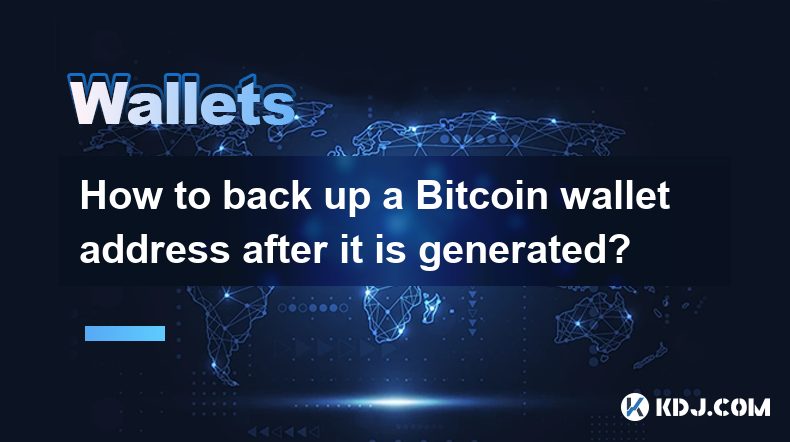
Key Points:
- Bitcoin wallet addresses are not directly backed up. Instead, you back up the private keys or the seed phrase that allows you to access the Bitcoin associated with that address.
- Multiple backup methods exist, each with its own security considerations.
- Security is paramount; losing access to your private keys means losing your Bitcoin.
- Regular backups and employing multiple methods are crucial for robust security.
How to Back Up a Bitcoin Wallet Address After it is Generated?
The question of backing up a Bitcoin wallet address is slightly misleading. You don't directly back up the address itself. The address is simply a public identifier, like your email address. What you need to back up is the private key or, more commonly, the seed phrase associated with that address. This is because the private key grants you exclusive control over the Bitcoin held at that address. Losing your private key is akin to losing your money forever.
There are several ways to back up your Bitcoin private keys or seed phrase:
- Writing it down: This is the most common and arguably the most secure method, provided you store the physical copy securely. Use a pen and paper, preferably a durable material. Consider writing it in multiple locations, perhaps using a strongbox or a safety deposit box for one copy. Never use a digital document or easily accessible location.
- Using a hardware wallet: Hardware wallets are physical devices designed to securely store your private keys offline. They are considered the most secure option. Many hardware wallets allow you to back up your seed phrase using a paper method, often with a visual representation to help with accuracy. Always follow the manufacturer's instructions carefully.
- Using a password manager (with caution): Some password managers can store your seed phrase, but this introduces a single point of failure. If your password manager is compromised, your Bitcoin is at risk. Only use reputable password managers with strong encryption and security features, and understand the risks involved. This is generally less secure than the other methods.
- Splitting your seed phrase: This advanced technique involves splitting your seed phrase into multiple parts and storing them separately. This enhances security as a single compromised location won't expose your entire seed phrase. However, careful planning and management are critical to ensure you can recover all parts correctly.
Understanding the Importance of Seed Phrases:
Your seed phrase is a sequence of words that cryptographically represents your private keys. It is the master key to your Bitcoin. Never share your seed phrase with anyone, and always verify the authenticity of any website or software that requests it.
If you're using a software wallet, ensure you understand its backup mechanisms. Some software wallets offer the option to export your private keys or seed phrase directly. Always follow the instructions provided by your wallet provider meticulously. If you're unsure, seek assistance from experienced individuals or the support team of your wallet provider.
Security Considerations:
- Physical security: If using a paper backup, protect it from fire, water, and theft. Consider using a waterproof and fire-resistant safe or safety deposit box.
- Digital security: If using a password manager, ensure it's strongly protected with a unique, complex password. Never reuse passwords across different platforms.
- Regular backups: Regularly back up your seed phrase or private keys. Ideally, you should do this at least once a year, or whenever you change devices or wallets.
Common Questions:
Q: What if I lose my seed phrase?
A: If you lose your seed phrase, you will likely lose access to your Bitcoin. There is no way to recover your private keys without it.
Q: Can I back up my Bitcoin address directly?
A: No, you can't directly back up your Bitcoin address. The address is public. You need to back up your private keys or seed phrase.
Q: Is it safe to store my seed phrase online?
A: No, storing your seed phrase online is extremely risky and should be avoided at all costs.
Q: Which backup method is the most secure?
A: Using a hardware wallet and storing a physical copy of your seed phrase in multiple secure locations is generally considered the most secure method.
Q: What if I suspect my seed phrase has been compromised?
A: If you suspect your seed phrase has been compromised, immediately secure your funds by moving them to a new, freshly generated wallet address. Change your passwords and take steps to investigate the potential breach.
Q: Can I use a photo of my seed phrase as a backup?
A: While technically possible, it is not recommended. Digital copies are vulnerable to hacking, data loss, and device theft. A physical, handwritten copy stored securely is far more reliable.
Q: What if I forget my seed phrase?
A: There is no recovery method if you forget your seed phrase. It's crucial to keep it safe and secure.
Q: My wallet provider went bankrupt. How do I access my Bitcoin?
A: If you have your seed phrase, you can access your Bitcoin by importing it into a new wallet. The bankruptcy of a wallet provider does not affect the security of your Bitcoin itself, provided you have a backup of your private keys.
Disclaimer:info@kdj.com
The information provided is not trading advice. kdj.com does not assume any responsibility for any investments made based on the information provided in this article. Cryptocurrencies are highly volatile and it is highly recommended that you invest with caution after thorough research!
If you believe that the content used on this website infringes your copyright, please contact us immediately (info@kdj.com) and we will delete it promptly.
- North Korea's Cyber Plot: Funding Weapons Development Through Virtual Heists
- 2025-07-01 10:30:12
- Undervalued Crypto Tokens: Compute Tokens Stealing the Show?
- 2025-07-01 10:50:12
- XRPL EVM Sidechain: Unleashing Smart Contracts and Cross-Chain DeFi on XRP
- 2025-07-01 10:30:12
- Archaeology Unearths Ancient Coin Moulds: A Glimpse into Indo-Greek Trade in Gujarat
- 2025-07-01 10:50:12
- MAGACOIN FINANCE: Altcoin Returns & the Early Adoption Advantage
- 2025-07-01 11:10:12
- Neo Pepe: Is This Presale the Crypto Opportunity You've Been Waiting For?
- 2025-07-01 11:10:12
Related knowledge
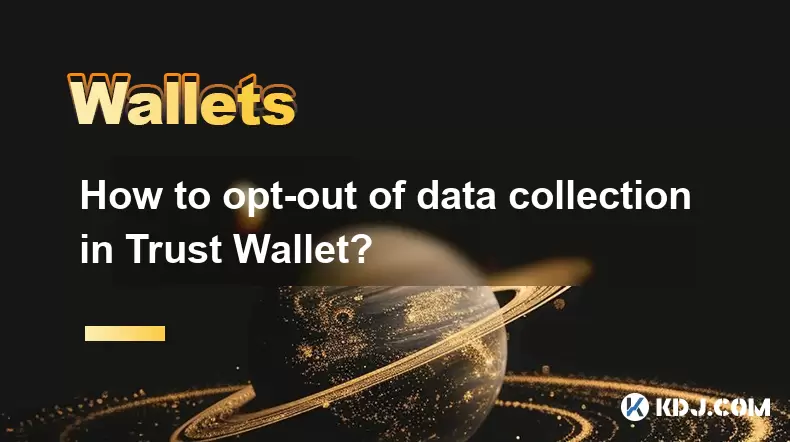
How to opt-out of data collection in Trust Wallet?
Jul 01,2025 at 12:22pm
Understanding Data Collection in Trust WalletTrust Wallet, a popular mobile cryptocurrency wallet, collects certain types of data to enhance user experience and ensure the security of transactions. This data may include device information, usage patterns, crash reports, and anonymous analytics. While Trust Wallet emphasizes that it does not store privat...
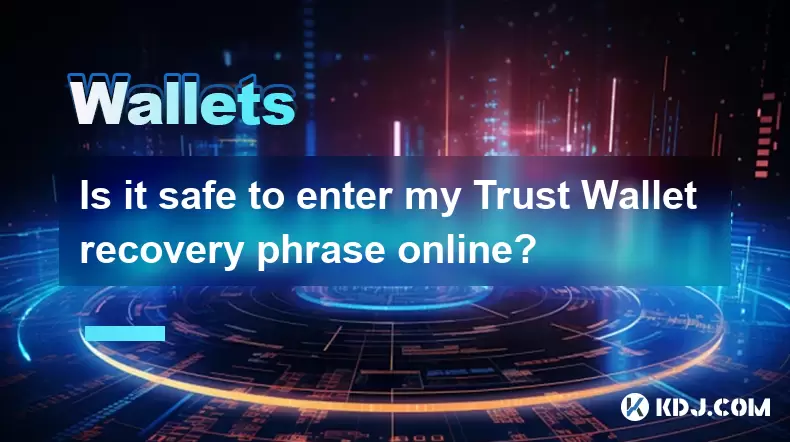
Is it safe to enter my Trust Wallet recovery phrase online?
Jul 01,2025 at 11:42am
Understanding the Role of a Recovery Phrase in Trust WalletA recovery phrase, also known as a seed phrase, is a sequence of 12 or 24 words generated during the initial setup of your Trust Wallet. This phrase acts as the ultimate backup to your wallet and grants access to all your funds stored within it. It is essentially the master key to your digital a...
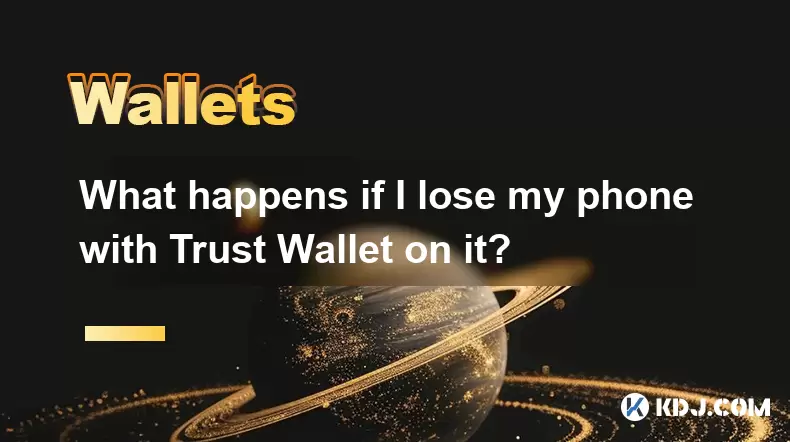
What happens if I lose my phone with Trust Wallet on it?
Jul 01,2025 at 10:03am
Understanding the Risks of Losing Your Phone with Trust WalletLosing your phone can be a stressful experience, especially if you use it to store digital assets through apps like Trust Wallet. The private keys and recovery phrases stored on your device are critical for accessing your cryptocurrencies, and losing access to them could result in permanent l...
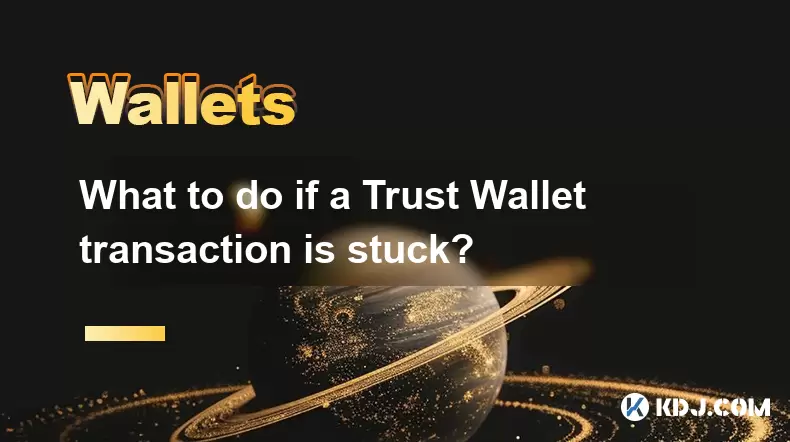
What to do if a Trust Wallet transaction is stuck?
Jul 01,2025 at 12:15pm
Understanding Stuck Transactions in Trust WalletWhen a Trust Wallet transaction is stuck, it typically means that the transaction has been broadcasted to the blockchain network but has not yet been confirmed. This can happen for various reasons, including low gas fees, network congestion, or wallet synchronization issues. A stuck transaction remains in ...
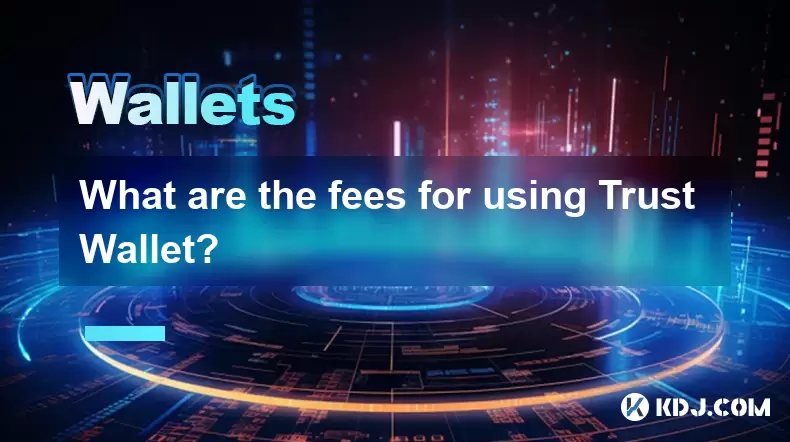
What are the fees for using Trust Wallet?
Jul 01,2025 at 07:36am
Overview of Trust Wallet and Its Fee StructureTrust Wallet is a popular mobile cryptocurrency wallet that supports multiple blockchain networks and tokens. As users begin to explore the functionalities of this wallet, one of the most common questions relates to fees — specifically, what fees are involved when using Trust Wallet for transactions or inter...
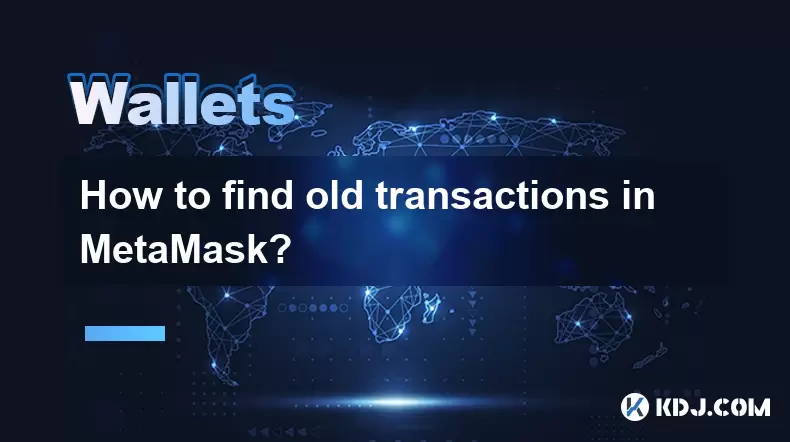
How to find old transactions in MetaMask?
Jul 01,2025 at 10:56am
What is MetaMask and Why Tracking Old Transactions MattersMetaMask is a widely used cryptocurrency wallet that allows users to interact with the Ethereum blockchain. Whether you're sending or receiving ETH, interacting with decentralized applications (dApps), or swapping tokens, all these activities are recorded as transactions on the blockchain. Over t...

How to opt-out of data collection in Trust Wallet?
Jul 01,2025 at 12:22pm
Understanding Data Collection in Trust WalletTrust Wallet, a popular mobile cryptocurrency wallet, collects certain types of data to enhance user experience and ensure the security of transactions. This data may include device information, usage patterns, crash reports, and anonymous analytics. While Trust Wallet emphasizes that it does not store privat...

Is it safe to enter my Trust Wallet recovery phrase online?
Jul 01,2025 at 11:42am
Understanding the Role of a Recovery Phrase in Trust WalletA recovery phrase, also known as a seed phrase, is a sequence of 12 or 24 words generated during the initial setup of your Trust Wallet. This phrase acts as the ultimate backup to your wallet and grants access to all your funds stored within it. It is essentially the master key to your digital a...

What happens if I lose my phone with Trust Wallet on it?
Jul 01,2025 at 10:03am
Understanding the Risks of Losing Your Phone with Trust WalletLosing your phone can be a stressful experience, especially if you use it to store digital assets through apps like Trust Wallet. The private keys and recovery phrases stored on your device are critical for accessing your cryptocurrencies, and losing access to them could result in permanent l...

What to do if a Trust Wallet transaction is stuck?
Jul 01,2025 at 12:15pm
Understanding Stuck Transactions in Trust WalletWhen a Trust Wallet transaction is stuck, it typically means that the transaction has been broadcasted to the blockchain network but has not yet been confirmed. This can happen for various reasons, including low gas fees, network congestion, or wallet synchronization issues. A stuck transaction remains in ...

What are the fees for using Trust Wallet?
Jul 01,2025 at 07:36am
Overview of Trust Wallet and Its Fee StructureTrust Wallet is a popular mobile cryptocurrency wallet that supports multiple blockchain networks and tokens. As users begin to explore the functionalities of this wallet, one of the most common questions relates to fees — specifically, what fees are involved when using Trust Wallet for transactions or inter...

How to find old transactions in MetaMask?
Jul 01,2025 at 10:56am
What is MetaMask and Why Tracking Old Transactions MattersMetaMask is a widely used cryptocurrency wallet that allows users to interact with the Ethereum blockchain. Whether you're sending or receiving ETH, interacting with decentralized applications (dApps), or swapping tokens, all these activities are recorded as transactions on the blockchain. Over t...
See all articles

























































































